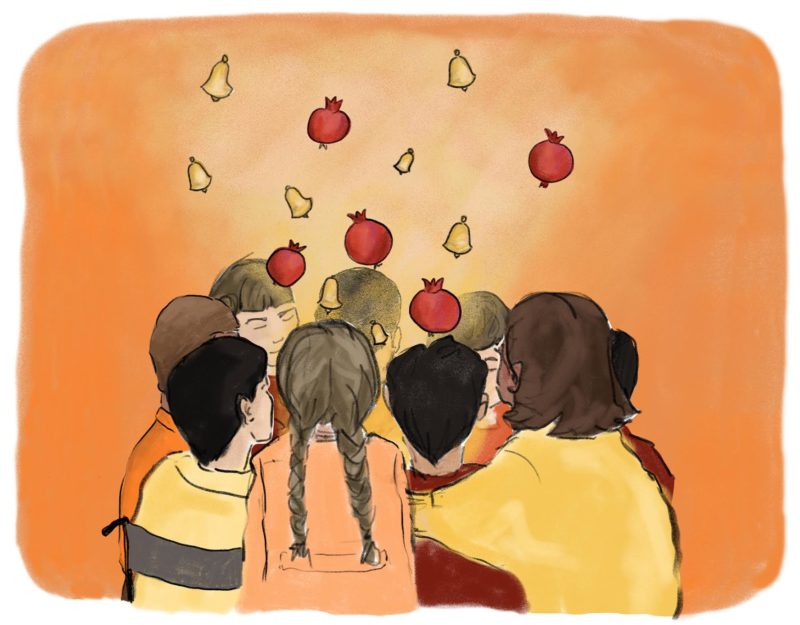Opinion
Goodness and blessing
Exploring the Jewish educational practices of well-being
In Short
What are the Jewish practices, pedagogies and resources that might promote health and wellbeing, both in content and in implementation?
Our children and teens are in crisis; all you have to do is Google “children and mental health news” to see the sobering studies on the impact of the pandemic, social media and the general state of the world on our young people. And frankly, the situation is not that much better for adults. As educators, we see how so many of the students who learn with us, regardless of their age or educational context, are really struggling.
But this is not the first time that students have struggled. In fact, it is possible to argue that Jewish education, going all the way back to the sages, is itself a response to challenging and even traumatic circumstances. This is good news; it means our ancestors have left us a treasure chest of wisdom and insight that helped them survive and even flourish over the ages in the many lands in which they lived.


Olivia McGiff / M²
Among other things, our ancestors left us with a beautiful definition of what a life of wellbeing looks like, tucked away into the Blessing for the New Month. This blessing is traditionally recited during the Torah service on the last Shabbat morning of the month. It reminds the congregation when the new month will begin, the new moon being notoriously difficult to see on one’s own. It also asks God to renew us for a life of “goodness and blessing,” which is, perhaps, a more authentically Jewish way to express our contemporary concept of “wellbeing.”
The content is quite familiar to those of us in the field of wellness today. The blessing asks for wellbeing that is physical (strong bones and a good livelihood), intellectual (love of Torah), emotional (life free of shame and filled with dignity) and spiritual (a life of awe and morality). It asks for long life, peace, wealth and that all the deepest desires of our hearts be fulfilled for goodness. It is a beautiful vision of a life well-lived, evoked each month to remind us anew.
As educators, this text may serve as a compelling roadmap for what we are educating towards, and an exciting one to study and then consider: How does the vision articulated in this text get expressed in today’s world? It also raises a provocative question: What are the specifically, if not uniquely, Jewish practices, pedagogies and resources which themselves support wellbeing, not just in content but also in implementation?
The blessing for the new month declares, “Chaverim Kol Yisrael” – let all of Israel be friends! We know that many educators are experiencing burnout and compassion fatigue due to the emotional toll they have had to carry for themselves, their communities and their students over the past almost two years. By exploring Jewish pedagogies and practices that promote health and wellbeing, and building a sense of connection and inspiration, educators can experience renewed purpose, collegiality, and friendship – and help their learners find meaning, too.
This year, Rabbi Lisa Goldstein and Mollie Andron, senior program director at: M2: The Institute for Experiential Education will be the lead facilitators of the Pedagogies of Wellbeing Research Fellowship, one of two M2 research fellowships. During this fellowship, a group of distinguished educators will explore and investigate pedagogies and practices that promote health and wellbeing.
The second fellowship will focus on the development of new Jewish pedagogies. (Rabbi Lisa Goldstein is a graduate of its inaugural cohort.)
Throughout these paid fellowships, select fellows will spend eight months researching and developing educational practices drawn from Jewish tradition through individual research, hevruta study, cohort meetings and a process of sharing and receiving feedback on individual projects. Applications for both fellowships are due by November 21, 2021.
Rabbi Lisa Goldstein is a master teacher and facilitator with almost 25 years of executive experience. Educated at Brown University and Hebrew Union College, she has worked as a congregational rabbi, the director of Hillel of San Diego and most recently, as the executive director of the Institute for Jewish Spirituality. She currently works in private practice, teaching Jewish mindfulness meditation, prayer and other Jewish spiritual practice and working with clients one-on-one for coaching, spiritual direction and NARM, a therapeutic approach to developmental trauma healing. She lives in New York City with her husband and foster son.











